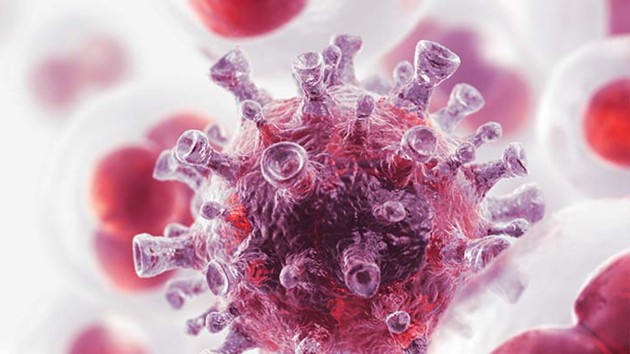Focus |
Collections
Filters
-
Collection Type
-
-
Focus |
 Systemic Inflammation as a Prognostic Marker
Systemic Inflammation as a Prognostic Marker
This collection of papers illustrates how a simple indicator of systemic inflammation based on neutrophilia and/or lymphocytopenia can provide prognostic information in a wide range of cancer types.
Image: JUAN GAERTNER/SCIENCE PHOTO LIBRARY; KATERYNA KON/SCIENCE PHOTO LIBRARY -
Focus |
 Proton Beam Therapy
Proton Beam Therapy
Radiotherapy is a key treatment modality in the clinical management of cancer. Advances in recent years have broadened the tool kit available to oncologists, including the development of proton beam therapy. With several proton beam centres opening globally, this high energy radiotherapy treatment is becoming increasingly accessible. Despite this, several questions remain around how to optimise delivery and support best clinical practice. This collection of articles explores some of the questions surrounding proton beam therapy and discusses recent advances in the delivery of radiotherapy.
-
Focus |
 Immune checkpoint inhibitors
Immune checkpoint inhibitors
Immunotherapies against immune checkpoint inhibitors have rapidly changed treatment paradigms for several major cancers including melanoma, non-small cell lung cancer and bladder cancer. In this selection of articles we highlight the expression of one of the key pathways, PD-L1, and its potential for selecting patients for therapy.
-
Focus |
 Hot Minireviews
Hot Minireviews
See what scientists world-wide are reading! View the most popular minireviews published in BJC.
-
Focus |
Web Focus on Cancer Immunotherapy
Exploiting and targeting the immune system are emerging as important therapeutic strategies for cancer.Here we bring together recent papers covering experimental models as well as early phase human clinical studies and highlighting novel CTL epitopes, cellular therapy approaches, cancer vaccines, and anti-tumour immunoRNases.
-
Focus |
New drugs to watch
There are over 500 new anti-cancer drugs in various stages of clinical development. The BJC remains an important venue to report clinical trial results. The following is a brief selection of recently published trials with promising new drugs to watch.
-
Focus |
Melanoma, the great leap forward
Metastatic melanoma has been among the most difficult cancers to treat with limited and highly toxic treatment options. Recent advances in immune checkpoint inhibitors and molecularly targeted drugs have profoundly changed the life expectancy and quality of life of patients with metastatic melanoma. Therapeutic options are broadening for these patients and these recent articles in the BJC illustrate the trajectory of current research.
-
Focus |
Clinical significance of MiRNA expression
Tumour MiRNAs - the focus of these articles is on changes during treatment, detection in urine or detection in tumours and how they relate to outcome and prognosis in a wide range of tumour types - pancreatic, prostate, bladder, colon cancer, melanoma, multiple myeloma and peripheral nerve sheath tumours. Though there is a major focus on genetic changes and the targeting of cancer treatment, microRNAs are another significant epigenetic mechanism for regulation in tumour biology that needs to integrated with the genetic profiles.
-
Focus |
The changing landscape of breast cancer prognostic prediction
We increasingly recognize that multiple factors influence disease outcome in breast cancer. A series of papers in the BJC shed new lights on how the method of diagnosis (screen detected versus self-detected), timing of initiation of therapy, factors that influence treatment compliance, and molecular features of the cancer contribute to treatment outcome. Understanding these variables that influence survival is critical for making optimal treatment recommendations in the clinic and also defines areas for future research.
-
Focus |
Web Focus on Lifestyle
Lifestyle is now known to contribute significantly to global cancer burdens. We highlight here some recent studies and meta-analyses that identify various factors associated with risk of developing cancer.Both prevention and increased risk have been variously associated with fruit and vegetable or whole grain product intake, meat consumption, and alcohol, and these, along with inadequate physical exercise and obesity are discussed in these papers.
-

 New Targets for Cancer Therapy: Minireview Reprints Collection
New Targets for Cancer Therapy: Minireview Reprints Collection